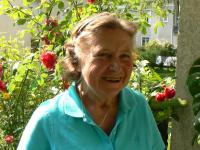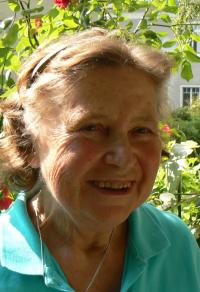I had to grow up when I was twelve

Download image
Helene Klier, née Fischer, was born on the 10th of December 1933 in Staré Město in the Šumperk region as a single child in a German family living in the Czechoslovakian border region. This had a lasting impact on her whole life. Her childhood was over when she was twelve and the World War II ended and deportation of Germans started. At first, she and her whole family were sent to a camp in Šumperk where they stayed in an old factory, which was followed by a stay in Selb and Hamerrau, towns located in Germany. The life in the camp was very difficult, there wasn’t enough food and no one knew where they would end up. Helene’s journey led her and her family to several Bavarian farmers who let them stay for free in exchange for work before they ended up in Schwäbisch Gmünd (east of Stuttgart). She married Emil Klier in 1955 there. Helene doesn’t feel any hatred towards Czechoslovakia and later Czech Republic - she often and happily comes back.

